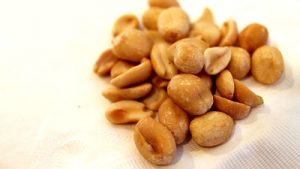
Image: Daniella Segura
Globally, 220-520 million people suffer from food-related allergies that range from mild discomfort to being the cause of death. Chances are, there is someone in your course affected by this chronic illness. Currently, there are no approved treatments for these allergies other than completely omitting them from your diet, using antihistamines or epinephrine when allergy symptoms appear, or oral immunotherapy. However, it’s very difficult to avoid cross-contamination, especially when you need to eat food someone else has prepared and immunotherapy takes 9-12 months, causing allergic reactions along the way. But what if there was a way to desensitize, even completely remove the immune systems’ response to food that cause allergies in as little as 2 weeks without causing a reaction?

Image: Stock Catalog
From a small study released on Nov 14, 2019, the researchers from Sean N. Parker Center for Allergy and Asthma Research at Stanford University has found that when targeting the alarmin IL-33 (a signal that initiates inflammatory responses) in peanut-allergic people with etokimab (an antibody injection) there was a 73% increase in the tolerance threshold for the allergy compared to the placebo group. These people could eat moderate amounts of peanuts (no more than 300 mg) 15 days after the injection without having to be expose to the allergen beforehand. This percentage dropped to a 57% increase after 45 days.
Since this is a relatively new study, there are still some improvements to be made on the procedure itself. The sample of the double-blind experiment was only 20 adults with 15 adults receiving estimable and 5 adults receiving the placebo, and the results were self-reported, which can cause a lot of variability in the data. However, the results from this small experiment was promising, and personally, I hope that etokimab will be available for the public use in the next few decades. It would be extremely helpful to eat out without having to worry about being rushed to the hospital due to accidental contamination or even just to see what peanuts would taste like.
-Sharon Li
